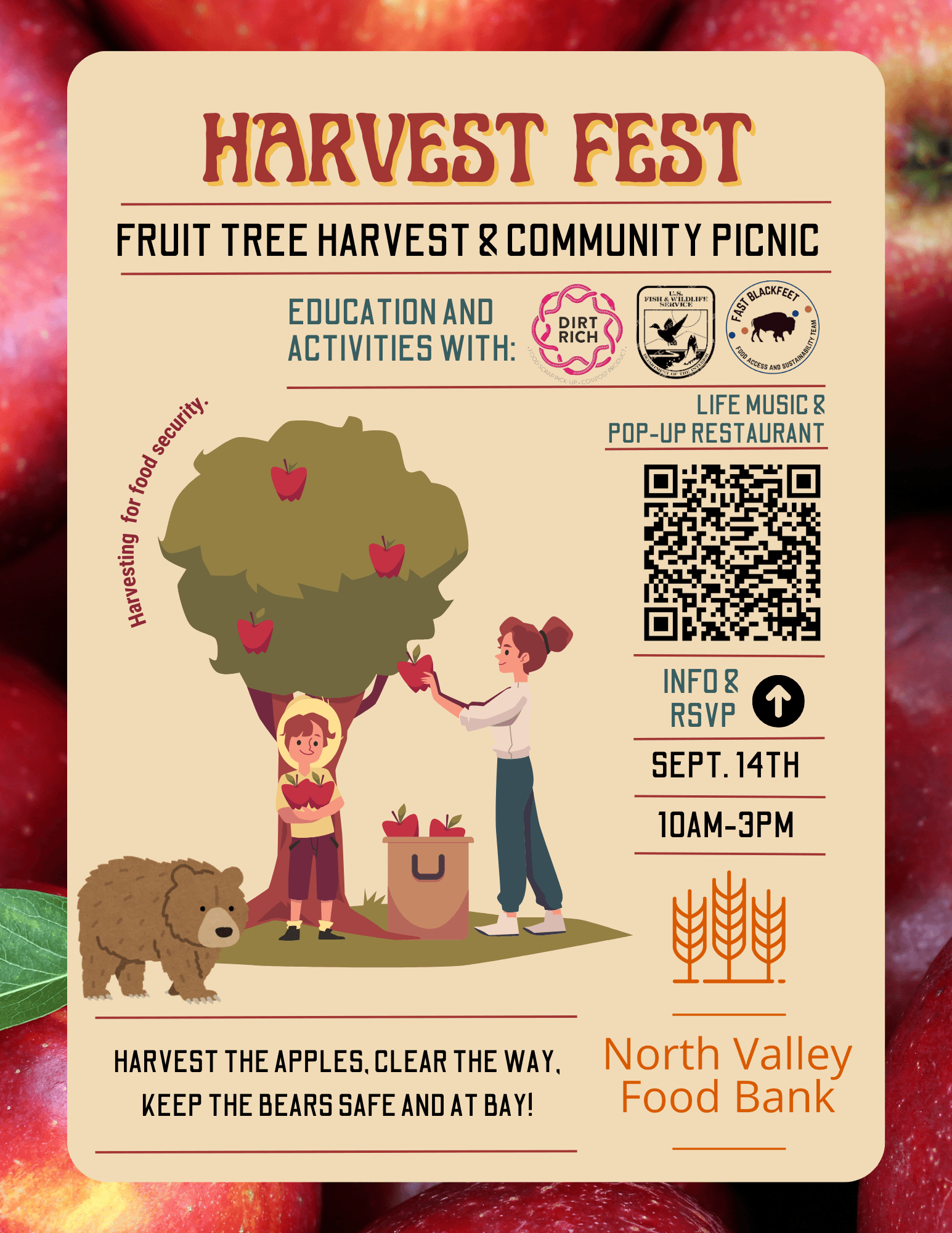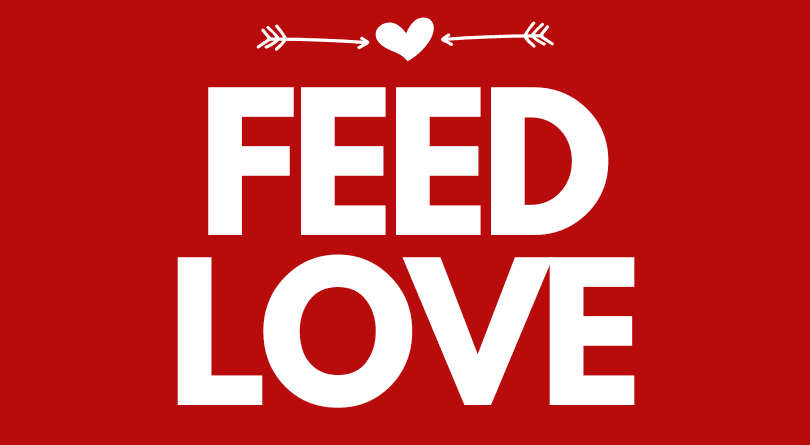Harvest Fest

Come join us for a fruit-filled day of fun! Get ready for harvesting, delicious food, live music, crafts, activities & education for the whole family.
THE HARVEST:
There are public fruit trees sprinkled all around Whitefish, our plan is to assign volunteers to harvest the trees and bring their bounty back to the North Valley Food Bank. You will check in at the food bank where you will be assigned to a location/specific tree to pick fruit. The public trees are mapped out by the City of Whitefish; if you have a private tree you need to be harvested, there will be a separate signup for that during the event (if we have capacity we can harvest the same day, otherwise we will schedule your tree for another upcoming day. Feel free to email Elizabeth at localfood@northvalleyfoodbank.org with questions regarding your private tree).
THE FEST:
After Harvesting you will come back to the NVFB where you are invited to enjoy a community picnic and activities. We will be processing apples and pressing fruits into juices, we will have a 'Pay What You Can' Pop-up Restaurant with food from local farms prepared by our amazing kitchen staff, and there will be games, crafts, educational activities, and live music, open mic style (email maddie@northvalleyfoodbank.org to secure your set spot, if interested in playing).
Partners & Educational Activities:
Montana Fish Wildlife & Parks (FWP) - will be providing Bear Aware information and education about the Grizzly Wolf Discovery Center in West Yellowstone.
Dirt Rich - will be providing information on composting as well as collecting all compost.
FWP Game Warden - will be providing information regarding the upcoming hunting season.
What do we do with all of the apples/fruits?
Well, of course, we will enjoy the deliciousness of a freshly picked apple, and we will even have a station for pressing them into juices, otherwise the apples will go to 3 places: NVFB to be distributed in the store or processed by the kitchen into delicious cooked meals for our store; the peels, pulp, and scraps will be collected by Dirt Rich for composting; & damaged fruits will be donated to the Grizzly Wolf Discovery Center.
Why do we Harvest the city's fruit trees? & What do apples have to do with bear conservation? More than you might think!
While an apple a day might keep the doctor away, it certainly won’t keep the bears at bay!
In Whitefish, Montana, as summer turns to fall, fruit trees in residential areas start to ripen. This timing coincides with bears descending from higher elevations in search of food and water, especially as they prepare to bulk up for winter hibernation.
Whitefish's fruit production boasts apple, pear, plum, and apricot trees—a delightful treat for neighbors but a challenge for wildlife managers. Bears, with their keen sense of smell, are experts at finding the ripest, most calorie-rich fruit. As wild berries like huckleberries and serviceberries become scarce, public fruit trees offer a sweet, easy meal.
In years when natural food sources are limited, such as during droughts, the problem intensifies. More bears are drawn into town, not just for the fruit but also attracting other wildlife like whitetail deer, which can, in turn, lure predators such as mountain lions closer to residential areas.
Why is this a problem?
While it might be thrilling to spot a bear from your living room window, it’s important to consider the situation from the bear’s perspective. In the fall, bears are singularly focused on consuming as much food as possible before winter. Once they discover the fruit in your backyard, they might also find bird feeders, garbage bins, or pet food—all easy, high-calorie options.
When bears become accustomed to human-provided food sources, it becomes a serious issue. They may keep returning to residential areas, and wildlife managers are often forced to remove them to protect both the bears and the community. Relocating bears is not only costly and dangerous but often unsuccessful, as bears tend to return to familiar territories or find trouble in new areas. Sadly, this sometimes leads to the bear being euthanized.
Preventing bears from accessing human food sources is far easier—and safer—than trying to address the problem once it’s started.

